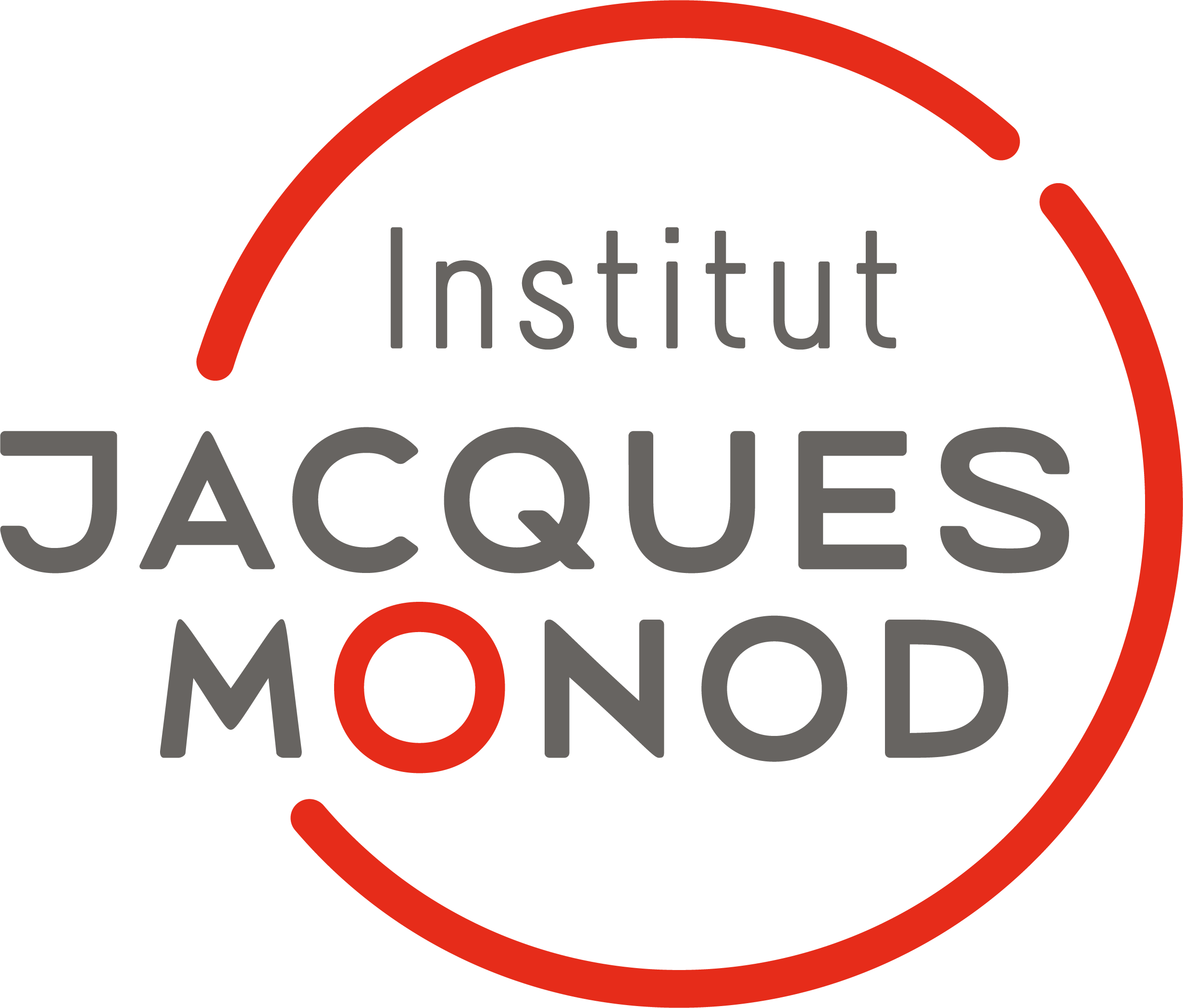History of the Institute
The project to create an institute of molecular biology on a university campus was entrusted to Jacques Monod in the early 1960s. The original aim was to create a large research centre that would bring teaching and research together.
The Institute of Molecular Biology (IMB) was founded in 1966, with Raymond Dedonder as its director. The IBM management committee included Jacques Monod and François Jacob, who were awarded the Nobel Prize for Medicine in 1965, together with their Pasteurian colleague André Lwoff. This committee defines the major scientific orientations that should be developed around the theme of the biochemistry of heredity: Study of replication, Protein biosynthesis, Mechanisms and control of transcription and translation in bacteria and in the cells of higher organisms, Study of the mechanisms of differentiation, Study of the conformations and conformational changes of biological macromolecules, Study of the functional associations of macromolecules and of the conformational problems posed by these associations.
The IBM premises (8,500 m2) at the Faculty of Sciences in Paris, on the site of the “Halle aux Vins”, were officially occupied in December 1969. In the following year, 13 laboratories with administrative and technical services (including a large library, workshops, a shop, etc.), a total of 143 researchers and teachers and 80 technicians and administrative staff, moved in.
In 1978, IMB underwent the first change in its initial organisation; the founding laboratories became 21 research groups organised into 4 departments. After the resignation of Raymond Dedonder, the management was taken over by two co-directors, François Chapeville and Giorgio Bernardi, and in 1979 the Institute took the name of Institut de Recherche en Biologie Moléculaire (IRBM).
In 1981, François Chapeville remained alone at the head of the institute, which he restructured into 5 departments with a total of 27 research teams. In 1982, the Institute officially became the Institut Jacques Monod (IJM). In 1983, F. Chapeville proposed, in order to facilitate cooperation between teams, a different distribution of these teams around 3 departments: Molecular and cellular structures and interactions, Molecular genetics of micro-organisms and cellular differentiation, Development. Throughout the 1980s, new groups joined the Institute.
Appointed Director in January 1992, Jacques Ricard again modified the structure of the IJM with a view to thematic coherence and improved evaluation; he created 5 departments with intellectual and financial autonomy (Genome Organisation and Expression, Supramolecular and Cellular Biology, Microbiology, Developmental Biology, Genome Dynamics and Evolution).
When Jean-Luc Rossignol, the new director of the IJM, took up his post in September 1996, the IJM had a staff of about 400, including many doctoral students and trainees divided into 31 groups. Jean-Luc Rossignol decided to maintain the previous structure in 5 departments while insisting on grouping the research themes around space (the components and the structural and functional organisation of cellular space), time (cellular dynamics and the dynamics of genome evolution), and the flow of information on which the integrated functioning of cells and organisms depends. In addition to the administrative infrastructure, the various technical services are grouped together in a “technical platform” within which imaging, flow cytometry and molecular modelling are particularly developed.
In 2001, Eric Karsenti succeeded Jean-Luc Rossignol and in January 2002 set up a Federative Research Institute, IFR 117 Systems Biology, with a view to re-founding the IJM on the “Paris Rive Gauche” site. This IFR brought together the IJM (“from the molecular to the organism”) and about ten laboratories working on functional and adaptive biology and on epigenetics.
Under the direction of Eric Karsenti, then Jean-Antoine Lepesant, who remained in office until the end of 2008, a major effort to recruit new groups was undertaken in view of the move to the Paris Rive Gauche premises.
In 2009, Giuseppe Baldacci, professor at the University of Paris Diderot, became the head of the Institut Jacques Monod until 2017.
Today, the Institut Jacques Monod is directed by Valérie Doye.

